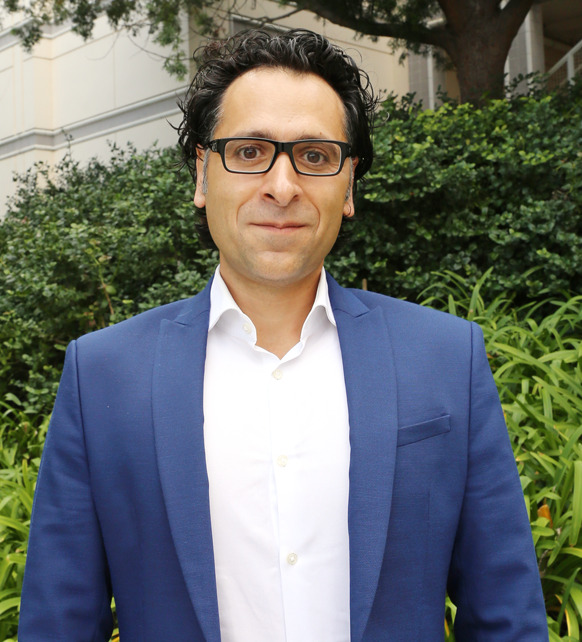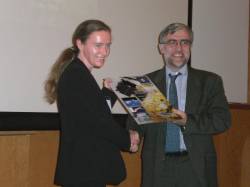Zak Kassas, associate professor of mechanical and aerospace engineering at the University of California-Irvine, has receuved the Young Investigator Research Program (YIP) award from the Air Force Office of Scientific Research (AFOSR). Kassas was one of 36 scientists and engineers from 30 institutions in the country to earn the recognition for 2022.
Kassas’ research aims to improve situational awareness in ground and aerial operations by taking advantage of megaconstellations. The three-year YIP grant, totaling $450,000, will fund his efforts.
He is also the author of two recent Inside GNSS magazine articles, “ENTER LEO on the GNSS Stage: Navigation with Starlink Satellites” in the November/December 2021 issue, and “Carpe Signum: Seize the Signal,” January/February 2021 issue.
Over the next decade, companies around the world will launch tens of thousands of low Earth orbit (LEO) satellites to improve broadband communications. With his project, “Dynamic Data Driven C-SPAN: Cognitive Sensing, Perception, Autonomy and Navigation,” Kassas will develop a dynamic data-driven application system (DDDAS) framework to deal with the challenges of LEO satellite megaconstellations: space situational awareness; large-scale optimization; adaptive, optimal, computationally efficient heterogeneous data fusion; and context-aware sensing and autonomy.
“We are witnessing a space renaissance,” said Kassas. “Thousands of LEO satellites have been launched or are planned for launch over the next few years. These satellites will shower the Earth with a plethora of signals, offering an unprecedented opportunity to enable scientific discoveries and advance numerous technologies, such as remote sensing, communications, navigation and autonomy. However, there’s no free lunch – there are several pressing fundamental questions that we must address to harness these megaconstellations to their fullest potential. We are very excited to tackle such questions via our proposed C-SPAN DDDAS framework. We appreciate the support of AFSOR’s Dynamic Data and Information Processing program for our efforts.”
Kassas also received the National Science Foundation CAREER (2018) award and the Office of Naval Research YIP (2019) award. He is principal investigator for a U.S. Department of Transportation research center called CARMEN (Center for Automated Vehicles Research with Multimodal AssurEd Navigation), which focuses on developing technology that combats GPS vulnerabilities.






